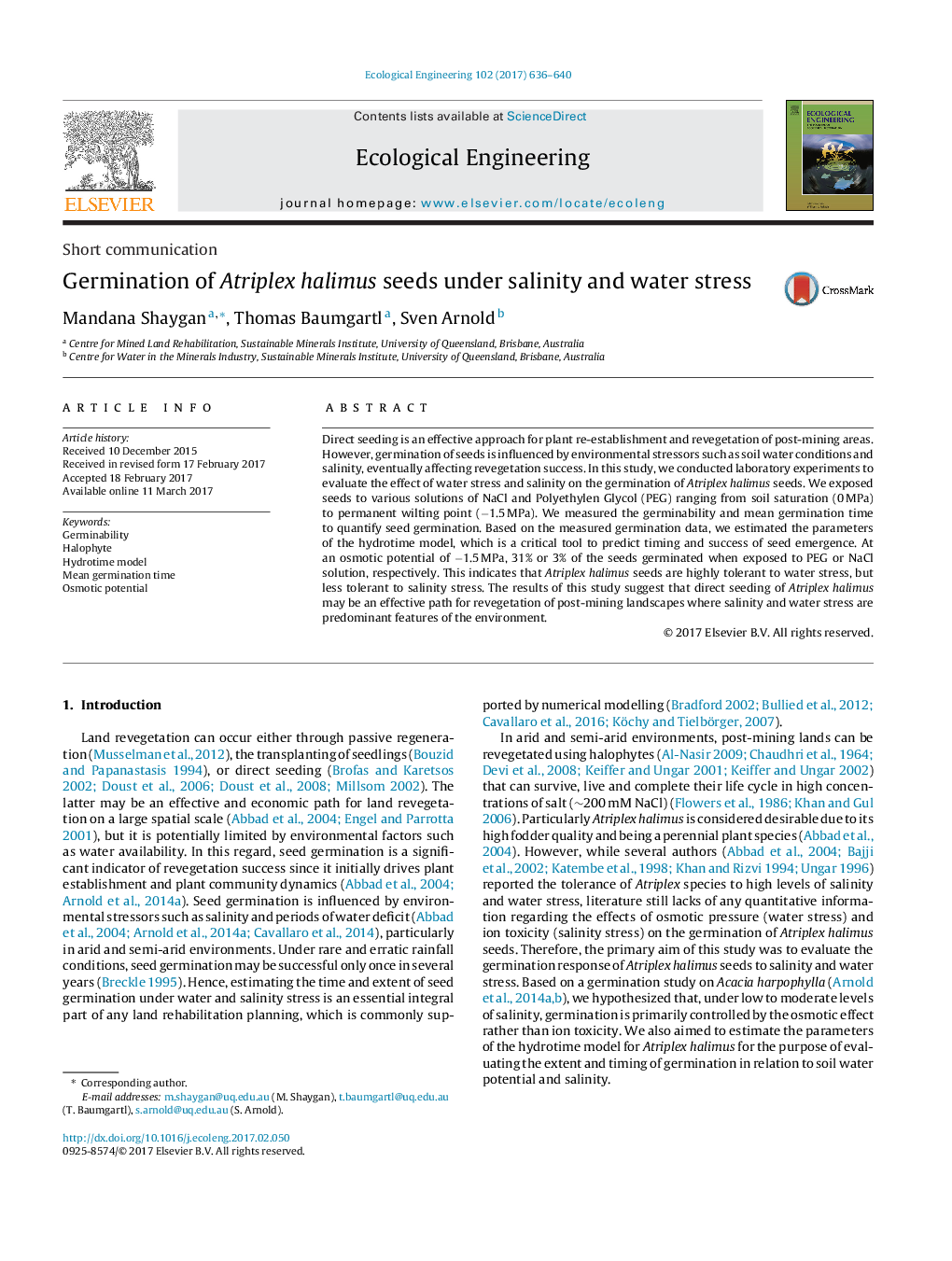| Article ID | Journal | Published Year | Pages | File Type |
|---|---|---|---|---|
| 5743810 | Ecological Engineering | 2017 | 5 Pages |
â¢Atriplex halimus seeds are tolerant to a broad range of salinity and water stress.â¢Osmotic effect controls Atriplex halimus germination at low to moderate salinity.â¢Direct seeding of Atriplex halimus may be an effective method for land revegetation.
Direct seeding is an effective approach for plant re-establishment and revegetation of post-mining areas. However, germination of seeds is influenced by environmental stressors such as soil water conditions and salinity, eventually affecting revegetation success. In this study, we conducted laboratory experiments to evaluate the effect of water stress and salinity on the germination of Atriplex halimus seeds. We exposed seeds to various solutions of NaCl and Polyethylen Glycol (PEG) ranging from soil saturation (0Â MPa) to permanent wilting point (â1.5Â MPa). We measured the germinability and mean germination time to quantify seed germination. Based on the measured germination data, we estimated the parameters of the hydrotime model, which is a critical tool to predict timing and success of seed emergence. At an osmotic potential of â1.5Â MPa, 31% or 3% of the seeds germinated when exposed to PEG or NaCl solution, respectively. This indicates that Atriplex halimus seeds are highly tolerant to water stress, but less tolerant to salinity stress. The results of this study suggest that direct seeding of Atriplex halimus may be an effective path for revegetation of post-mining landscapes where salinity and water stress are predominant features of the environment.
